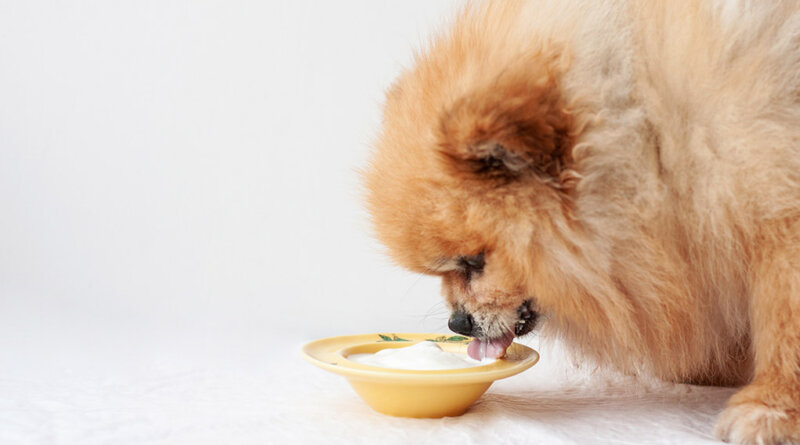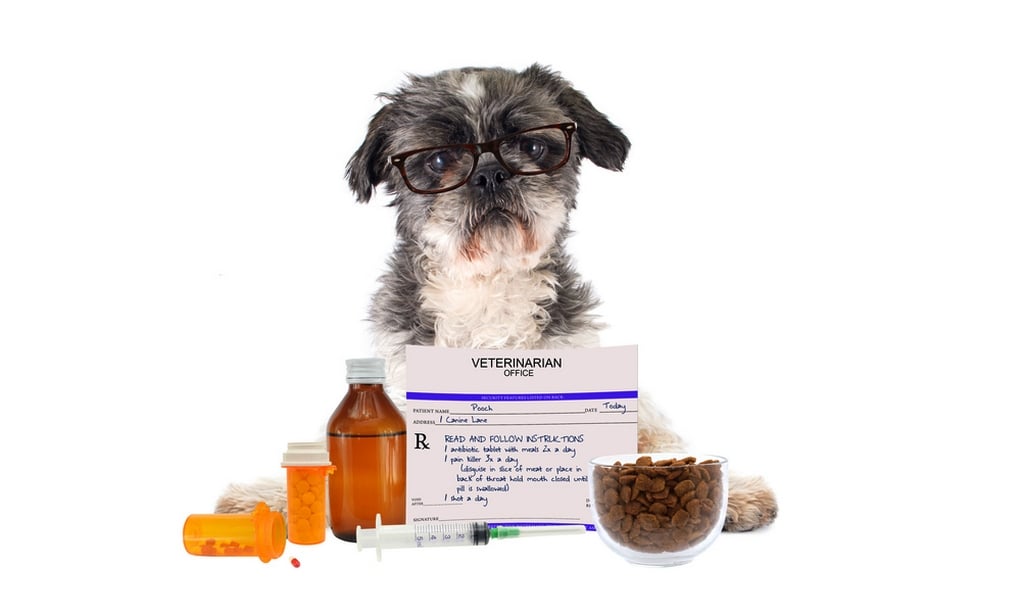Homemade Probiotics For Dogs
Natural, homemade probiotics for dogs provide significant health benefits. It can help by maintaining the levels of the good bacteria in their intestines to fight off the harmful bacteria responsible for infections and other diseases.
And yes, there are good bacteria out there. The balance of the good and bad bacteria can either make or break your dog’s health.
For instance, the more good bacteria (like Probiotics) that succeed in your dog, the better your pup’s overall health.
First, let’s discuss what even probiotics are? How can they help with our dog’s immune system?
What are Probiotics for Dogs?
If you love yogurt, you’ve probably read or heard of probiotics. For starters, Probiotics are friendly or good bacteria.
Probiotics are live organisms that are found in your dog’s gut. On the other hand, a few health benefits of this organism are:
- Promote dog gut health
- Helps digest food
- Produce critical vitamins like vitamin K and B vitamins
- Influence mood by producing serotonin
- Fight off dangerous bacteria
- Produce enzymes
- Produce fatty acids that help reduce the growth of harmful bacteria
- Helps strengthen the dog’s immune system
Dogs have billions or not trillions of good bacteria in their stomach to help battle infections, and this is called Microbiome.
What is Microbiome?
A microbiome is the community or population of bacteria and other microorganisms like viruses, fungi, and protozoa that live inside the dog’s ecosystem.
Also, a microbiome is like a fingerprint. It is unique to each dog because every dog is exposed to different environments. These bacteria all work together to make our bodies healthy like any other organs. Scientists have also called the microbiome “the forgotten organ.”
How Probiotics Support The Immune System
It is believed that 80% of a dog’s immune system is in its gut. With that being said, bacteria is one of the most crucial elements to your dog’s health.
Bacteria, like Probiotics, live inside your dog’s gut because they eat the same foods your dog does. For instance, bacteria love to eat fiber since your pup can’t digest it.
When these bacteria eat fiber, they’ll “poop out” or release short-chain fatty acids (SCFAs). Meaning probiotics are great for promoting health benefits by producing healthy SCFAs for your dog.
These short-chain fatty acids can either live in your dog’s colon or travel into your dog’s body. These SCFAs play a significant role in your dog’s immune system by:
- Feed good bacteria
- Prevents the growth of harmful bacteria
- Prevent leaky gut
- Protection against metabolic disease and obesity by reducing glucose levels
- Helps reduce chronic inflammation by making important T-cells in the immune system
- Protect against food allergens
- Helps absorb calcium, magnesium, iron, and other nutrients
Health Benefits of Probiotics for Dogs
On the other hand, let’s discuss the other health benefits of probiotics for dogs. We know that excellent bacteria support your pup’s immune system, but there are still a lot of probiotic benefits that can help with your dog’s overall health.
Probiotics can help prevent:
If there is even a tiny change to the species of bacteria in your dog’s gut, you can easily notice it through the host. The health issues above are all connected to shifts in the bacterial population in your dog’s microbiome.
When your dog has a lot of diverse bacteria, bacteria shifts are less significant. However, bacteria shifts happen all the time because of antibiotics, drugs, toxins, aging, and having a high-fat diet.
Natural Probiotic For Dogs
When it comes to natural probiotics for dogs, these are probiotic-rich foods. These are fermented foods that contain a lot of good bacteria that support gut flora.
Foods that contain Probiotics
Yogurt
The first thing on the natural probiotics for dogs list is yogurt. Let’s discuss one of the most popular or not the most popular probiotic-rich food known to men.
Yogurt is full of probiotics that you can feed safely to dogs. It is a type of curdled milk but with reduced fat content.
Yogurt is fermented milk that can be a great source of friendly bacteria like bifidobacteria, lactobacilli, S. thermophilus, etc. These good bacteria can help fight off chronic gastrointestinal diseases and fungal infections.
As stated above, yogurt can also help prevent the effects of antibiotic therapy like diarrhea, vomiting, and irritable bowel syndrome.
The amount of yogurt you can give to your dog will depend on their weight. Some dog owners tend to add one or two tablespoons of yogurt to wet food once a day to help maintain their dog’s overall gut health.
However, dairy products have their downsides because they can cause inflammation and immune issues in dogs.
In addition, some yogurt products contain very few probiotics. As the dog owner, it’s your responsibility to check if the yogurt is high in sugar to avoid unwanted changes to the gut flora.
Soft Cheeses
On the other hand, certain types of good bacteria cannot survive the strongly acidic environment of a dog’s gastrointestinal tract. With this, these friendly bacteria never make it to their intestines.
This is where soft cheeses come in handy because bacteria in soft fermented cheeses can live in erosive gastric juices and finally find their way to the dog’s intestine.
A few examples of soft cheeses that can benefit your dogs are Swiss, Gouda, and Cheddar Cheeses.
These cheeses contain lactic acid bacteria that can help kill infectious bacteria helps, absorb nutrients from digestive food and help with constipation.
Buttermilk
In addition, another great source of probiotics for dogs is buttermilk. It is important not to heat buttermilk when you give it to your pup because cooking the milk will destroy the good bacteria in them.
Live cultures are added to help ferment sugars in buttermilk. Give it straight from the carton.
Similar to yogurt and soft cheeses, it also contains lactic acid bacteria that can be a great benefit to your dog’s digestive system.
Buttermilk powder can help eliminate “tear staining” in dog breeds prone to runny eyes like English bulldogs, cocker spaniels, and poodles.
You can buy powdered buttermilk in select stores and sprinkle it on your dog’s wet food.
Kefir
This food is a bit similar to yogurt, but with a less dense texture. Kefir contains lots of probiotic bacteria, yeast, vitamins, and proteins.
It is made using all types of milk. You can make kefir from cow milk, goat milk, rice milk, or coconut milk.
However, some dogs can react differently to these foods with the probiotic-rich foods above. Some dogs suffer from lactose intolerance from dairy products.
Lactose is a kind of sugar found in milk that the digestive system should break apart before being digested correctly.
It is still best advised to consult with your dog to ensure the proper way to get probiotics because lactose intolerance is no joke.
A few symptoms of this are diarrhea, nausea, and stomach cramps.
Probiotic-Rich Vegetables and Fruit for Dogs
If your dog is suffering from lactose intolerance, don’t worry, other foods are probiotic-rich! A few examples of these are:
- Apples
- Bananas
- Garlic
- Asparagus
- Dandelion Greens
- Seaweed
- Flaxseed
- Chia Seeds
- Chicory Root
- Carrots
- Broccoli
- Goatmilk
Dog Probiotic Supplements
If you’re looking for supplements, not natural probiotics for dogs, there are now many probiotics or other digestive supplements for dogs that you can buy in-store or online.
However, there are certain factors that you should keep in mind before buying probiotics for dogs. Before giving your dog probiotics, take into consideration the following:
- Quality – We all want what’s best for our dogs. It’s our job to research and search for the highest quality possible for them. Don’t waste money on a supplement that might not work.
- Check the type of Probiotic – There are many types of probiotics (i.e., Lactobacillus acidophilus, Lactobacillus casei, and Bifidobacterium breve). It is best to consult with your vet to ensure that you’ll be getting the proper probiotic for your dog.
- Expiration date – I mean, this is pretty self-explanatory. Why would you give your dog outdated supplements? Also, probiotics will not be as effective for a certain amount of time.
Recommended Probiotics Supplement for Dogs
Here are some of our top picks for the best probiotic supplement for dogs:
- Purina FortiFlora Probiotics for Dogs
- PetVitalityPRO Probiotics for Dogs
- Strawfield Probiotics for Dogs
- NaturVet – Digestive Enzymes for Dogs – Plus Probiotics & Prebiotics
- Nutramax Proviable Digestive Health Supplement Multi-Strain Probiotics and Prebiotics
Homemade Probiotic Recipes for Your Dog
If you’re the type of pet parent to cook homemade dog foods, you can try these recipes. With the right natural probiotics for dogs’ ingredients, you can ensure that you’ll be giving your dog high-quality and probiotic-rich meals.
Here are a few simple homemade probiotic-rich meals for your pup:
Yogurt Treats with Parsley and Carrots
Ingredients
- 1 and 1/3 cups of plain yogurt
- 1/3 cup of chopped fresh parsley
- 1/3 cup of shredded carrots
Directions
- Add all ingredients to a mixing bowl
- Mix and put into an ice cube tray or a silicone mold
- Let it freeze for a couple of hours
Pumpkin Peanut Butter Yogurt Drops
Ingredients
- 1/4 cup of peanut butter and pumpkin puree
- 2 cups of yogurt
- A pinch of turmeric
Directions
- Grease a mini muffin pan
- Place all the ingredients in a food processor
- Mix all the ingredients until they’re well-combined
- Move the ingredients to the muffin pan and freeze it for a couple of hours
Frozen Cranberry Pupsicles
Ingredients
- 3 tablespoons of plain kefir or coconut kefir
- 1/2 cup of raw goat’s milk
- 1/2 cup of plain Greek yogurt
- 1/3 cup of fresh cranberries
- A pinch of parsley
- 1 daily dose of a fish oil supplement
Frequently Asked Questions
Is it OK to give my dog probiotics daily?
When giving probiotics daily, you have to provide them with the right ones.
And the answer to this question will depend on the dog. If you have a dog with intestinal bacterial overgrowth or excessive gas, it is advised not to take probiotics every day.
On the other hand, most dogs do great with daily probiotics. Dogs that eat kibble or have a high starch diet can thrive with daily probiotic consumption.
How much yogurt should I give my dog?
Generally, you can give yogurt to your dog by simply adding a spoonful and mixing it with their food. As I stated above in the Homemade Probiotic Recipes for Your Dog section, you can also use it as an ingredient in meals and treats.
Adding one to two teaspoons of yogurt a day to their meal is safe to give to your dog.
How do I know if my dog needs probiotics?
If your dog is planning to be on antibiotics, it’ll need probiotics. Why? Because antibiotics can change your dog’s gut health.
And these changes can lead to diarrhea, nausea, vomiting, and other gastrointestinal side effects. If you see these signs, your dog needs probiotics.
When your dog’s GI tract is out of balance, it increases the number of harmful bacteria in your gut. Probiotics can help balance out and fight off these harmful bacteria.
How Fast Do Probiotics Work?
Probiotics typically work in a couple of days. On the first day, your dog should get some comfort from the arrival of good bacteria.
On the second day, things should be back to normal. If you’re unsure about giving your pup probiotics, it is best to talk to your vet about it.
Homemade Probiotics For Dogs Summary
We all want what’s best for our dogs. That includes giving the best natural probiotic for dogs.
Because probiotics can give plenty of health benefits to our beloved best friend, one of the best benefits that probiotics provide is strengthening our dog’s immune system.
Probiotics can also help prevent UTIs, diarrhea, yeast overgrowth, and more.
But when it comes to natural probiotics for dogs, these foods might be closer to your home than you think.
Foods like yogurt, soft cheeses, buttermilk, and kefir are probiotic-rich foods to get started.
In addition, you can find probiotics in apples, bananas, carrots, and broccoli. With these ingredients, you can create homemade dog foods focused on probiotics.
On the other hand, there are now probiotic supplements for dogs that you can buy online. But with natural probiotics, you can save a lot of money.
READ NEXT: PREBIOTICS FOR DOGS: 6 THINGS YOU MUST KNOW
Related












